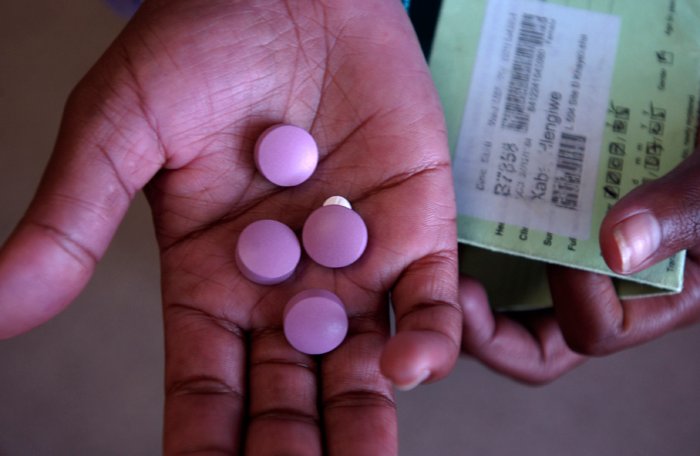Medicines patent pool gets first patent, but companies need to follow suit

Jan 04, 2011
In a move that could boost access to affordable medicines in the developing world, the Medicines Patent Pool was formally created in July 2010, and promptly received official backing from the US National Institutes of Health (NIH) two months later.
MSF has been actively campaigning for the creation of the Pool since 2006. MSF treats over 160,000 people with HIV across the developing world largely thanks to the availability of affordable generic medicines. As people on treatment become resistant to their drug combinations over time, access to newer medicines is constantly needed – but these are more expensive.
The mission of the Medicines Patent Pool is to facilitate the production of cheaper medicines for the developing world, by allowing generic manufacturers to produce copies of patented drugs, in exchange for royalty payments to the rights holders. The goal is also to support the development of urgently-needed formulations that don’t exist, such as ‘fixed-dose combinations’ that combine two or more medicines into one pill, or adapted formulations for children.
The US NIH backing came with a decision to licence its rights on the AIDS drug darunavir to the Medicines Patent Pool. This is an important first step, but other patents need to be put in the Pool to ensure people can receive affordable treatment in the long run. Drug companies must now step up and put their patents in the Pool.
Elodie JAMBERT, Pharmaceutical Coordinator, MSF’s Campaign for Access to Essential Medicines “The onus is now on the drug companies that own patents on key AIDS medicines to put their patents in the Pool. If companies are genuine about wanting to boost access to newer medicines, then they must license the patents that are actually blocking generic production and will make a real difference to people’s lives.”
MSF has been actively campaigning for the creation of the Pool since 2006. MSF treats over 160,000 people with HIV across the developing world largely thanks to the availability of affordable generic medicines. As people on treatment become resistant to their drug combinations over time, access to newer medicines is constantly needed – but these are more expensive.
The mission of the Medicines Patent Pool is to facilitate the production of cheaper medicines for the developing world, by allowing generic manufacturers to produce copies of patented drugs, in exchange for royalty payments to the rights holders. The goal is also to support the development of urgently-needed formulations that don’t exist, such as ‘fixed-dose combinations’ that combine two or more medicines into one pill, or adapted formulations for children.
The US NIH backing came with a decision to licence its rights on the AIDS drug darunavir to the Medicines Patent Pool. This is an important first step, but other patents need to be put in the Pool to ensure people can receive affordable treatment in the long run. Drug companies must now step up and put their patents in the Pool.
Elodie JAMBERT, Pharmaceutical Coordinator, MSF’s Campaign for Access to Essential Medicines “The onus is now on the drug companies that own patents on key AIDS medicines to put their patents in the Pool. If companies are genuine about wanting to boost access to newer medicines, then they must license the patents that are actually blocking generic production and will make a real difference to people’s lives.”





Leave a Comment